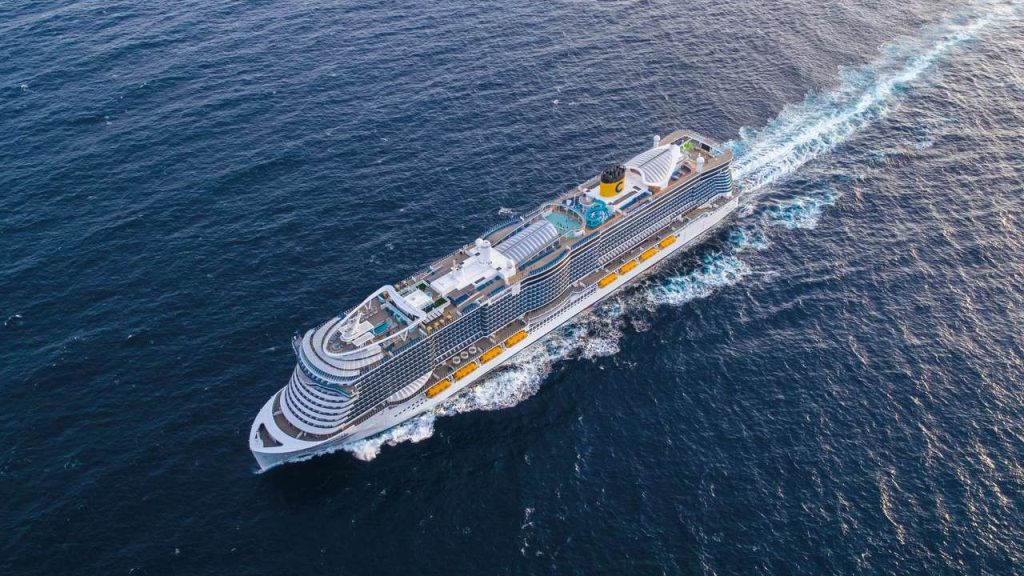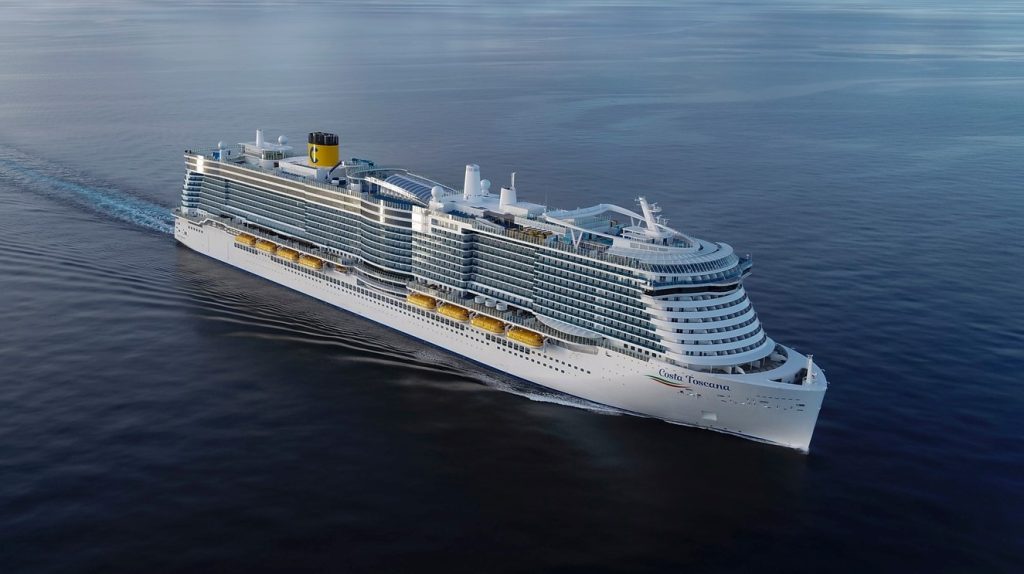With the concept ‘The Good Power of Travel’, Costa Cruises expresses a new philosophy of travel, focused on the creation of value and commitment to responsible innovation.

Costa Cruises has presented the 16th edition of its Sustainability Report, covering the year 2021. The report highlights the company’s sustainability achievements and defines future goals and commitment to sustainable growth in the cruise industry.
The report announces Costa Cruises’ new sustainability strategy, focused on four subject areas, nine material topics and 21 goals, all aligned with the goals of Carnival Corporation & plc. In line with the United Nations’ Sustainable Development Goals (SDGs) 2030 agenda, and following a careful Environmental, Social and Governance (ESG) analysis, four key priorities were identified as part of the company’s vision of the future: moving toward climate neutrality; regenerating resources; empowering people; and building a transformative ecosystem.
“This is the 16th edition of our sustainability report, a figure that underscores our consolidated and pioneering commitment to sustainability. 2021 has been a year shaped by a profound and substantial evolution of Costa. We have worked to offer a new way of traveling and a product value proposition, which finds in sustainability an important asset.” Said Mario Zanetti, President of Costa Cruises. “Our work will continue in the coming years, with a strategy that focuses on the transformative power of travel, The Good Power of Travel, as the title of the new report indicates. This is a business model that is capable of generating social, environmental and economic value, along with continuing our focus on consistently exceeding guest expectations.”

Concerning the first area, climate neutrality, Costa Cruises’ ambition is to introduce a new generation of ships that can operate with zero net carbon emissions by 2050. The company is also working to further improve the energy efficiency of its existing fleet and to support innovation in port infrastructure. Part of this commitment includes the debut of the first ships powered by liquefied natural gas (Costa Toscana and Costa Smeralda), the installation of the latest emission-cutting systems on more than 90 percent of its ships, and a focus on operating shore power technology. At this moment one-third of the fleet’s ships have the capability, five more ships are in the pipeline.
Regarding the regeneration of resources, 100% separate collection and recycling of materials such as plastic, paper, glass and aluminum is already carried out on all ships. In addition, 90% of daily water needs are met by transforming sea water through the use of desalinators, a value that reaches 100% on Costa newer ships.
The third strategic area, focused on empowering people, concerns both guests and employees. For guests, the goal is to raise awareness about the positive impact of being increasingly responsible travelers in their choices. For employees, the goal is to promote a fair and inclusive work environment, and to enhance their skills.
The last strategic area for the building of a transformative ecosystem concerns the value generated by the territories and communities that welcome Costa ships. In 2021 only, with ships operating only in the Mediterranean for a reduced period of the year, Costa ships visited 31 ports, with 17 different itineraries, reviving an ecosystem that includes nearly 16,000 suppliers.
An essential part of Costa’s commitment to people and the planet is expressed through the high-impact projects of the Costa Crociere Foundation, an independent nonprofit organization whose work is complementary and synergistic with Costa’s sustainability activities. Since its establishment in 2014, Costa Crociere Foundation has carried out a total of 31 environmental and social projects, benefiting more than 125,000 people of more than 130 different nationalities.
The complete sustainability report of Costa Cruises is available on the company’s website.